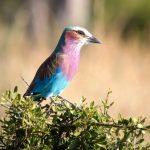You probably already know from experience just how annoying and demoralizing mosquitoes and other biting insects can be.
But the danger is multiplied tenfold when you run into them whilst on your African safari. Malaria is among the most lethal diseases on the planet, and the bugs living in this region of the world are a major carrier of it. When setting forth on such expeditions, you should thus make sure you take some effective anti-malaria medications beforehand. But there are also numerous other things you can do to protect you and your loved ones from insect bites while you are in the Great Outdoors. Here a few of them.
Use a good insect repellent
If you regularly go camping, hiking, fishing or enjoy any other type of outdoor activity – then you know the necessity of wearing a good bug repellent when it comes to protecting yourself and those closest to you from mosquitoes and other biting insects. Mosquitoes are drawn to the smell, warmth and chemicals secreted by human bodies, so forming a barrier between the bugs and all areas of exposed skin on YOUR body, is a sure-fire way of bidding them adios when you are outside.
The strongest and most effective insect repellents contain DEET as their active ingredient. However, according to some authorities, this synthetic chemical is toxic to both humans and the natural environment, so if you don’t fancy being exposed to this chemical, then you can choose from the numerous ‘natural’ repellent alternatives now on the market. These contain active ingredients ranging from citronella, eucalyptus oil, rosemary essential oil, pyrethrins, and more and therefore are the best mosquito repellent for babies as well as adults. Bear in mind though that despite their eco-friendliness, they may not ward off insects as effectively as DEET formulae, so it is up to you to decide if the trade-off is worth it.
Wear the right clothes
Another way of protecting yourself from insect bites, is to cover as much of your skin as possible with clothes – and with the right clothes. Don thick, long sleeved pants and shirts, and be sure to tuck your pants into your (equally thick, woolen) socks. Wear high quality, well-sealed shoes as well.
Watch what you eat!
You may not have been aware of this fact, but mosquitoes and other biting insects have got a huge sweet tooth. The more sugar you consume whilst you are out on safari, therefore, the higher the risk of being assailed by insects. So try to limit your intake of sugary drinks and snacks whilst you are out viewing the local wildlife! Avoid eating excessive wheat products as well, as mosquitoes are also heavily attracted to the smell of yeast.
In the same vein, mosquitoes and other biting insects are attracted to the sweet-smelling aroma of deodorants, perfumes and after-shave lotions, so try to avoid using too many of these whilst you are on your safari adventure.
Mosquito nets
Mosquitoes are most active between dawn and dusk – precisely the times that you are most defenseless and at risk! Protect yourself by laying a good mosquito net over your tent or hammock. You can even spray the mosquito net canopy with insect repellent for good measure.
Avoid light and flame
Another thing that draws biting insects to you is light and flame, so when darkness falls, try to minimize the amount of lighting you use around your campsite. This is one occasion where a roaring campfire will not enhance your outdoors experience!
Here is an extensive article on some more natural mosquito repellent to stop you getting bitten whilst on safari.
If you are considering a Tanzania safari then please do just get in touch or call us up for advice in the UK on +44 (0) 8704 1216 or on our toll free US number +1 866 356 4691.






